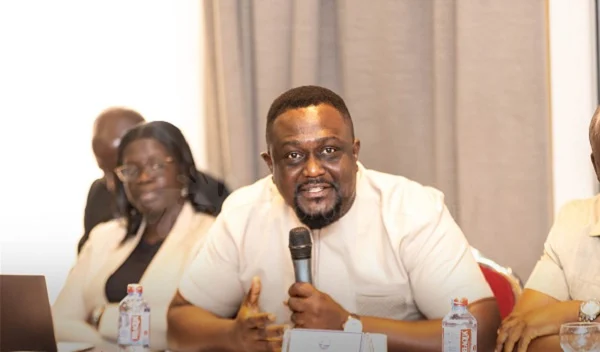Former Managing Director of the Electricity Company of Ghana (ECG), Samuel Dubik Mahama, has declared his full willingness to cooperate with any investigative body looking into the disappearance of over 1,300 ECG containers at Tema Port.
This statement follows mounting public outrage and concerns over the missing containers, which were intended for ECG’s operational needs. The loss has led to a full-scale investigation, with preliminary findings raising serious questions about ECG’s procurement processes and financial management.

According to an investigative committee’s report, ECG was expecting 2,491 containers to be cleared and distributed. However, 1,357 containers have been declared missing, leading to speculation over mismanagement or possible corruption.
The missing containers reportedly contained vital electrical equipment necessary for ECG’s power distribution operations. Investigators believe these containers remained at Tema Port for an extended period without clearance, ultimately leading to their unexplained disappearance.
Speaking on the Citi Breakfast Show on Thursday, April 3, Mahama expressed his shock and disappointment over the situation but distanced ECG from direct responsibility.
“The containers were never in the custody of the ECG. If they were in ECG’s custody, then you can hold ECG responsible. But this is the case where they were still under the port authorities. I am ready for any investigation and will provide my side of the story.”
His remarks indicate potential lapses in coordination between ECG and port authorities, further deepening the controversy.
The probe into the missing ECG containers has unearthed a series of critical missteps and lapses in ECG’s operations:

- Before 2022, ECG had a dedicated fund that received weekly allocations for clearing shipments. However, this fund was discontinued due to financial constraints, as cited by the ECG board.
- Despite financial difficulties, ECG awarded contracts to two firms to handle container clearance. One of these firms was pre-financed by ECG.
- One of the contracted firms lacked the necessary license to handle the project, raising serious procurement violations and legal concerns.
- ECG’s procurement directorate was merged with its Housing and Estate unit, which affected the efficiency of procurement operations.
- The Director of Procurement had no prior experience in procurement and was not affiliated with any professional procurement body.
The revelations surrounding ECG’s procurement processes and financial management have heightened calls for accountability and transparency. The Ghanaian public, stakeholders, and regulatory authorities are demanding a thorough investigation and appropriate sanctions for any individuals found culpable.
With Mahama pledging full cooperation, the focus now shifts to government agencies and investigators to uncover the truth behind the missing ECG containers.
As the scandal unfolds, Ghanaians are left questioning how such a massive logistical failure occurred, and whether this issue is symptomatic of deeper structural problems within ECG’s operations.




